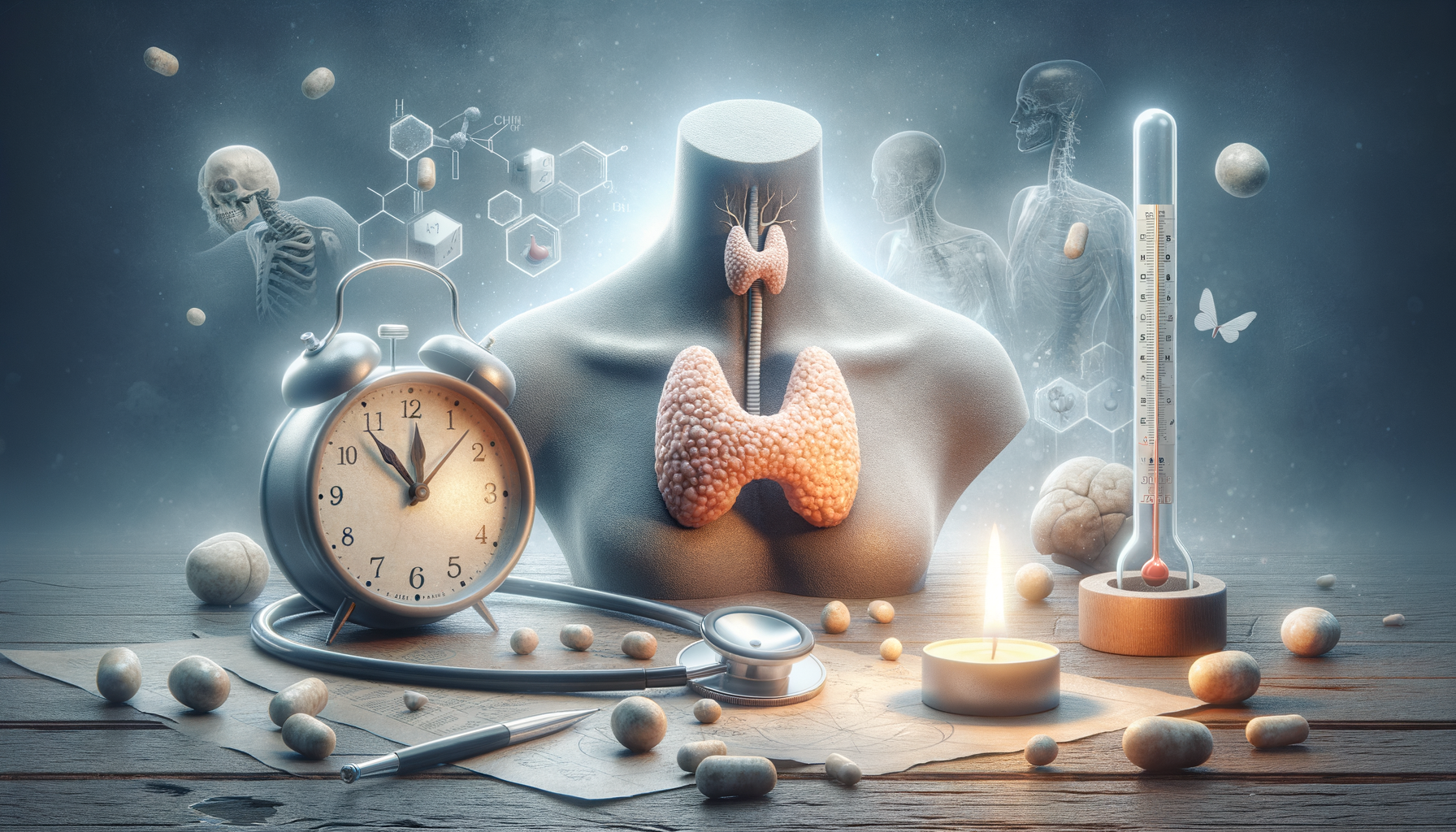Understanding the Underactive Thyroid
An underactive thyroid, also known as hypothyroidism, is a condition where the thyroid gland doesn’t produce enough hormones to meet the body’s needs. This small, butterfly-shaped gland located at the base of the neck plays a crucial role in regulating metabolism, energy production, and overall hormonal balance. When the thyroid is underactive, it can lead to a wide range of symptoms that can affect various aspects of health and well-being.
Hypothyroidism can develop due to several factors, including autoimmune diseases, certain medications, radiation therapy, thyroid surgery, or iodine deficiency. It is more common in women and older adults, but it can affect individuals of all ages. Understanding the underlying causes of an underactive thyroid can help in identifying and managing the condition effectively.
Early detection of hypothyroidism is essential for preventing complications and improving quality of life. By recognizing the early indicators and seeking medical advice, individuals can take proactive steps to manage their thyroid health and maintain optimal wellness.
Common Symptoms of an Underactive Thyroid
The symptoms of an underactive thyroid can vary widely from person to person, and they often develop gradually over time. Some of the most common symptoms include:
- Fatigue and sluggishness
- Unexplained weight gain
- Cold intolerance
- Dry skin and hair
- Muscle weakness
- Depression or mood swings
- Constipation
- Memory problems or difficulty concentrating
These symptoms can often be mistaken for other health issues or attributed to lifestyle factors, making it important to consider a comprehensive evaluation if multiple symptoms are present. Additionally, some individuals may experience more severe symptoms, such as swelling of the neck (goiter), joint pain, or irregular menstrual cycles.
Understanding these symptoms and their potential impact on daily life can empower individuals to seek timely medical attention and explore appropriate treatment options.
The Importance of Early Diagnosis
Early diagnosis of an underactive thyroid is crucial for preventing long-term health complications. If left untreated, hypothyroidism can lead to elevated cholesterol levels, heart disease, infertility, and, in severe cases, myxedema coma, a rare but life-threatening condition.
To diagnose hypothyroidism, healthcare providers typically conduct a physical examination and order blood tests to measure thyroid hormone levels, including Thyroid Stimulating Hormone (TSH) and thyroxine (T4). Elevated TSH levels and low T4 levels often indicate an underactive thyroid.
Once diagnosed, treatment typically involves hormone replacement therapy to restore thyroid hormone levels to normal. Regular monitoring and follow-up appointments are essential to ensure the effectiveness of the treatment and make any necessary adjustments.
By understanding the importance of early diagnosis and seeking medical advice when symptoms arise, individuals can take control of their thyroid health and prevent potential complications.
Lifestyle Changes to Support Thyroid Health
In addition to medical treatment, certain lifestyle changes can support thyroid health and improve overall well-being. These changes may include:
- Eating a balanced diet rich in iodine, selenium, and zinc
- Engaging in regular physical activity to boost metabolism
- Managing stress through relaxation techniques such as yoga or meditation
- Ensuring adequate sleep to support hormonal balance
- Avoiding exposure to environmental toxins that may affect thyroid function
While these lifestyle changes can complement medical treatment, it’s important to consult with a healthcare provider before making significant dietary or lifestyle modifications. A personalized approach that considers individual health needs and goals can lead to better outcomes and improved thyroid health.
Living Well with an Underactive Thyroid
Living with an underactive thyroid requires ongoing management and self-care. With the right support and resources, individuals can lead fulfilling lives and maintain optimal health. Some strategies for living well with hypothyroidism include:
- Building a strong support network of family and friends
- Staying informed about thyroid health and treatment options
- Keeping track of symptoms and progress through a health journal
- Communicating openly with healthcare providers about concerns and treatment adjustments
- Participating in support groups or online communities for individuals with thyroid conditions
By adopting a proactive approach to thyroid health and seeking guidance from healthcare professionals, individuals can navigate the challenges of hypothyroidism and enjoy a high quality of life.




Leave a Reply